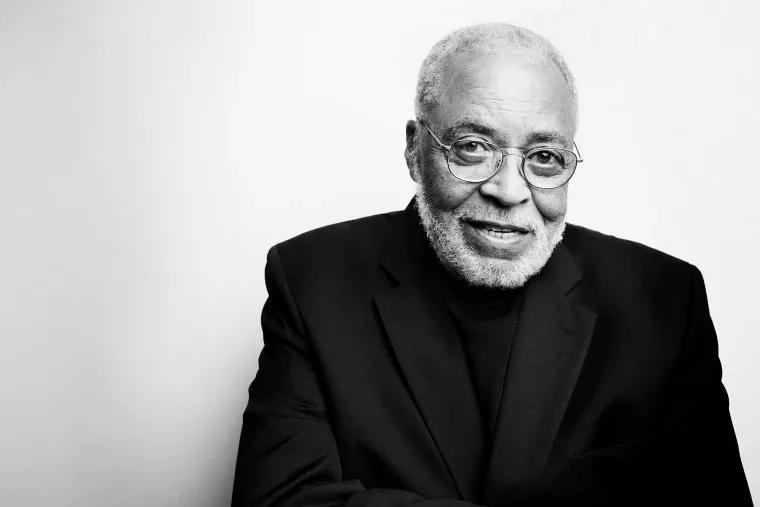James Earl Jones, legendary actor known for iconic voice, dies at 93
James Earl Jones, who overcame racial prejudice and a severe stutter to become a celebrated icon of stage and screen — eventually lending his deep, commanding voice, “The Lion King” and Darth Vader — has died. He was 93.

James Earl Jones, the legendary actor who overcame racial barriers and a severe stutter to become a towering figure in film, stage, and voice acting, has died at the age of 93.
His agent, Barry McPherson, confirmed that Jones passed away Monday morning at his home in New York’s Hudson Valley, though the cause of death was not immediately known.
Jones, a trailblazer in his field, became one of the first African American actors in a recurring role on daytime television with "As the World Turns" in 1965. His illustrious career spanned decades, earning him two Emmys, a Golden Globe, two Tony Awards, a Grammy, the National Medal of Arts, the Kennedy Center Honors, an honorary Oscar, and a special Tony for lifetime achievement. In 2022, a Broadway theater was renamed in his honor.
Known for his profound voice, Jones lent his vocal talents to iconic roles like Darth Vader in Star Wars, King Mufasa in The Lion King, and even the voice behind CNN’s famous "This is CNN" tagline. His voice performance earned him a 1977 Grammy for "Great American Documents."
Jones’ legacy includes unforgettable roles in films like Field of Dreams, The Great White Hope (where he portrayed boxer Jack Johnson), and Cry, the Beloved Country. He also played key roles in major Hollywood films like Dr. Strangelove, Conan the Barbarian, and three Tom Clancy adaptations: The Hunt for Red October, Patriot Games, and Clear and Present Danger.
Samuel L. Jackson once said of Jones, "If you were an actor or aspired to be an actor, one of the standards we always had was to be a James Earl Jones."
Born on January 17, 1931, in Arkabutla, Mississippi, Jones faced a challenging childhood. His father, Robert Earl Jones, left the family to pursue a career in boxing and acting, leaving Jones to be raised by his grandparents in Michigan. As a child, Jones developed a severe stutter and remained nearly mute for years. It was a high school teacher who helped him regain his voice by encouraging him to read poetry aloud, sparking his love for acting.
Jones later attended the University of Michigan, initially studying pre-med before switching to drama. After serving in the Army from 1953 to 1955, he moved to New York to pursue acting, often working with his father to make ends meet.
His breakout role came in 1970 with The Great White Hope, for which he won a Tony Award and was later nominated for an Academy Award for his performance in the film adaptation.
Jones was married twice, first to actress Julienne Marie Hendricks and later to Cecilia Hart, with whom he had a son, Flynn Earl, in 1983. Hart passed away in 2016.
In 2022, the Cort Theatre on Broadway was renamed in his honor, marking a significant moment in his career and legacy. Director Kenny Leon, speaking at the ceremony, said, "You can’t think of an artist that has served America more."
Though Jones often cited his stutter as a reason he wasn't an outspoken political activist, he believed deeply in the power of storytelling. "You cannot change anybody’s mind, no matter what you do," he once said. "But you can change the way they feel."





